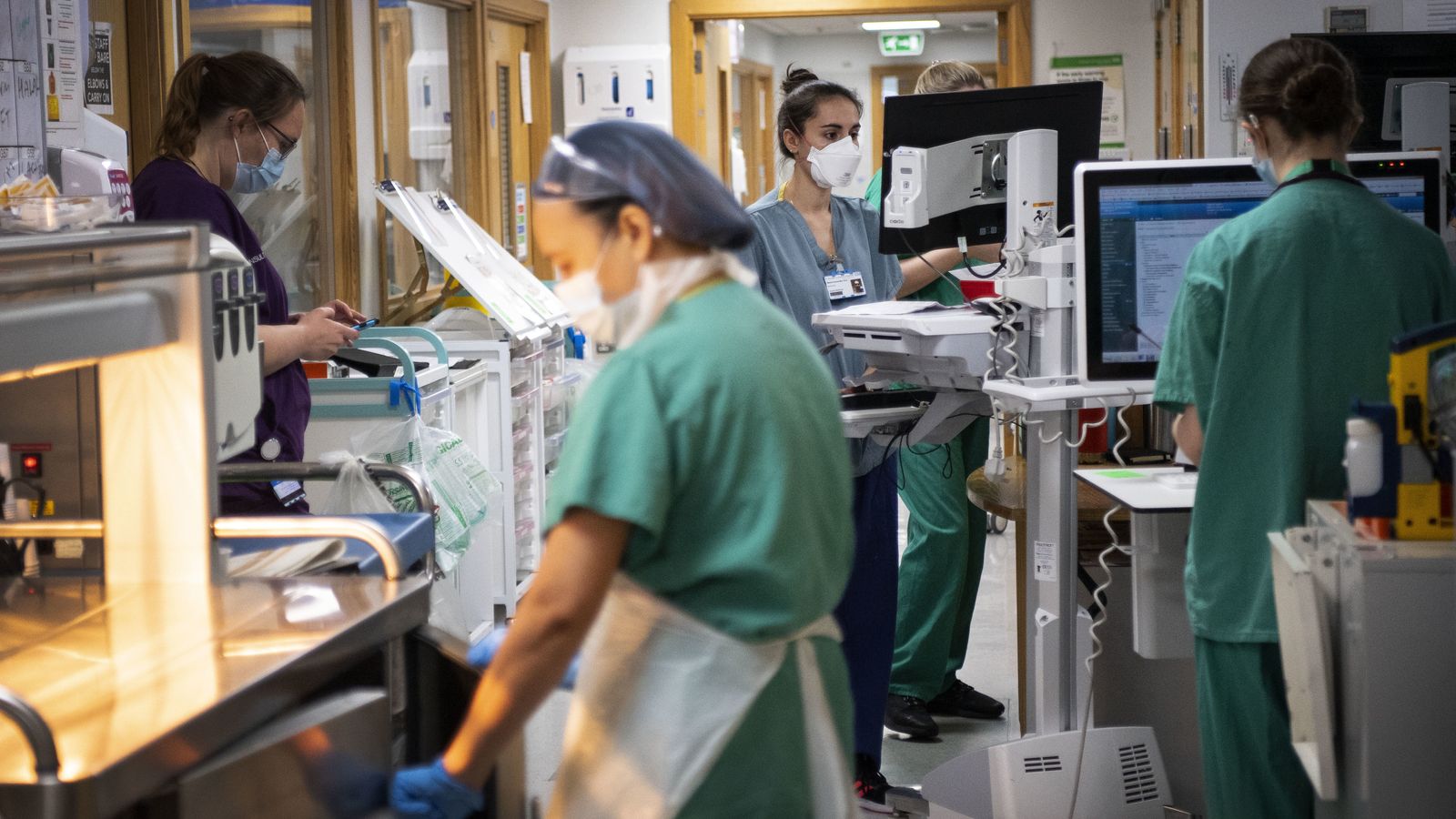Health unions have offered to pause strikes later this month if the government will enter serious pay talks.
But the offer appeared to have gone unheeded late on Saturday, with the health secretary going on attack, saying the industrial action would cause “significant risks” to patients.
In a piece for The Sun On Sunday, he said: “In a winter when we’re worrying about COVID, flu and Strep A – on top of the COVID backlogs – I am deeply concerned about the risks of strike action to patients.
“We are working hard to make sure patients experience as little disruption as possible. But with the NHS already under pressure due to the COVID pandemic and coming winter, the risks to patients will be significant.”
Nurses are due to strike in many parts of England, Wales and Northern Ireland on 15 and 20 December, claiming they are 20% worse off in real terms, due to successive below-inflation awards since 2010.
But the strike will cause major disruption, with thousands of operations expected to be postponed at a time when waiting lists are already at record levels.
You can share your story, pictures or video with us using our app, private messaging or email.
:: Your Report on Sky News apps
By sending us your video footage/ photographs/ audio you agree we can broadcast, publish and edit the material.
Royal College of Nursing (RCN) general secretary Pat Cullen said during the weekend that she was willing to pause the walkouts if Mr Barclay would agree to talk about the nurses’ pay demands.
Local pharmacies ‘close to the edge’ as nurses strike adds pressure and funding remains limited
‘I don’t know if the NHS are overwhelmed, or they’ve just stopped caring’: The patients left behind by a health service struggling to cope
How the NHS is using ‘virtual wards’ and smartphones to clear beds at hospitals operating at near capacity
“Negotiate with nurses and avoid this strike,” she said.
“Five times my offer to negotiate has been turned down.
“I will press pause on it when the health secretary says he will negotiate seriously on our dispute this year.
“That means each of us giving some ground.
“He gains nothing by ignoring the representatives of the NHS workforce.”
Read more:
‘I don’t know if the NHS are overwhelmed, or they’ve just stopped caring’: Patients left behind
NHS waiting list hits record high of 7.2 million people – as almost third of patients wait four hours in A&E
NHS tracker postcode search: See how your local trust is performing throughout the winter
Ms Cullen had earlier accused Mr Barclay of using “bullyboy” tactics and refusing to negotiate properly because she was a woman representing a largely female workforce.
The Department of Health on Saturday night said that the health secretary’s “door remains open for further talks”, but did not say whether pay would now be on the table.
A spokesperson said: “…We have accepted the recommendations of the independent NHS Pay Review Body in full.
“This means newly qualified nurses have had a 5.5% increase and those on the lowest salaries, such as porters and cleaners, have received a pay rise of up to 9.3%.”
Click to subscribe to the Sky News Daily wherever you get your podcasts
The RCN wants a rise of 5% above the Retail Price Index measure of inflation, which is currently 14%.
A similar offer – to suspend strikes – was made by Unison, which represents paramedics, emergency care assistants, ambulance technicians and other 999 crew members, who are planning to walk out on 21 December.
Read more:
Plans to cut backlog for NHS treatment and cancer care at ‘serious risk’
How the NHS is using ‘virtual wards’ and smartphones to clear beds at hospitals operating at near capacity
UNISON general secretary Christina McAnea said: “Rather than scare the public about the consequences of strikes, the health secretary should table genuine plans for improving wages.
“Sitting down with health unions and improving the pay on offer has put strikes on hold across Scotland.
“If Steve Barclay were to mirror Holyrood’s approach and commit to boosting wages this year, the threat of pre-Christmas strikes could well be lifted.
“But the ball sits firmly in the government’s court. Ministers know what they must do to prevent disruption later this month.”
Nurses and ambulance workers are among the many workers striking this month – others include rail workers, postal workers, bus drivers, highway workers, Border Force, and Heathrow baggage handlers.








